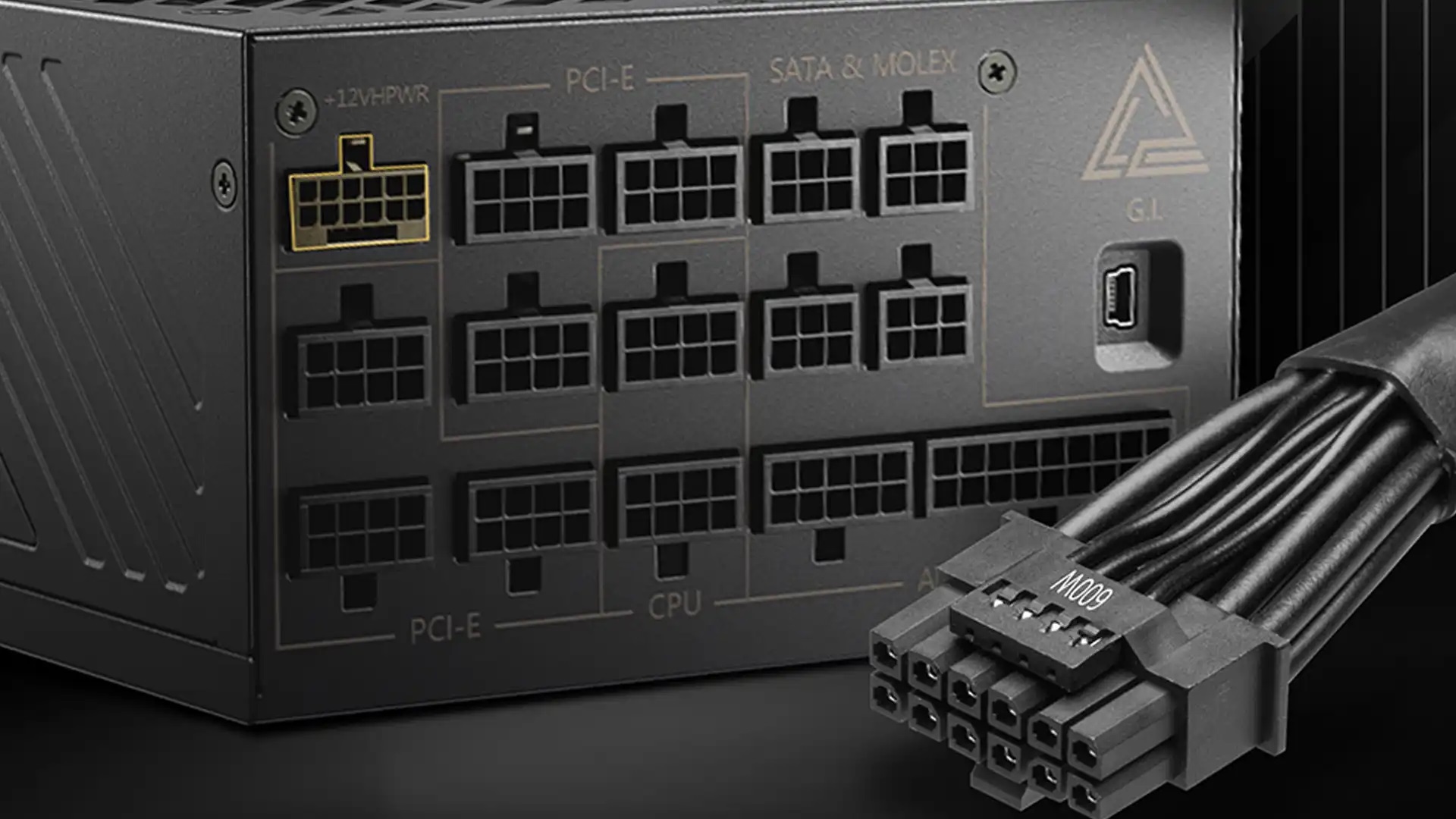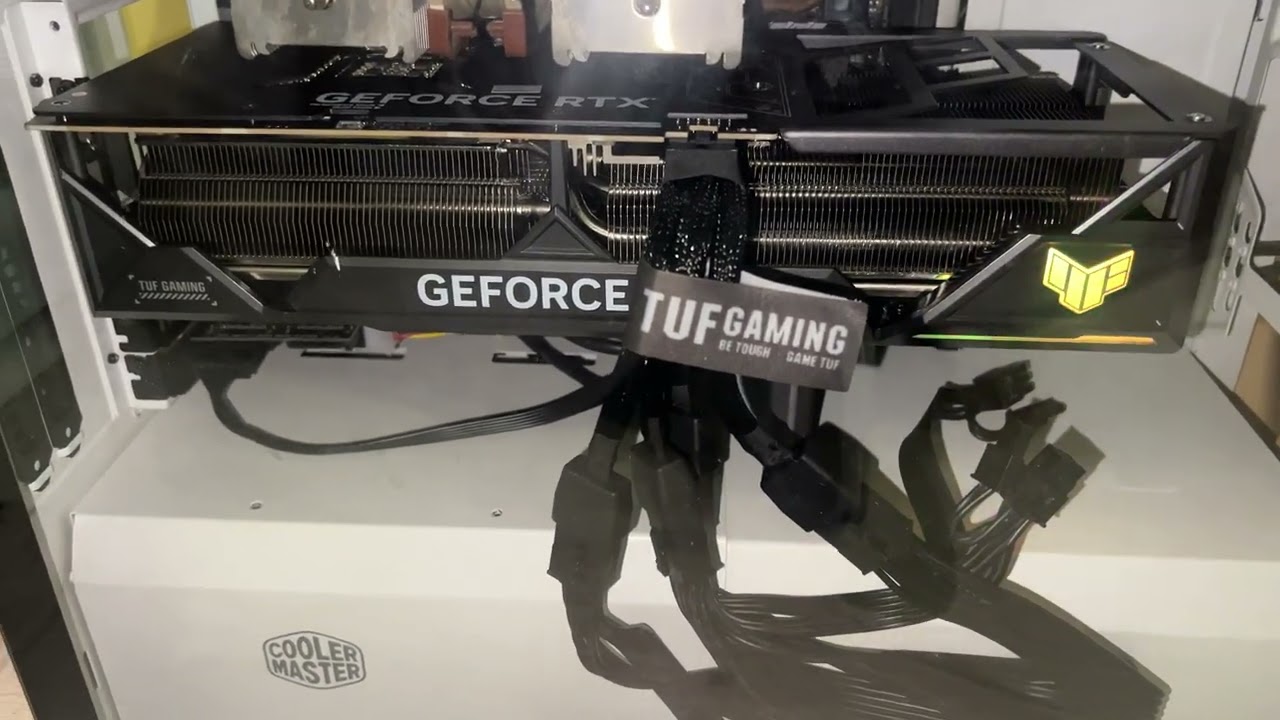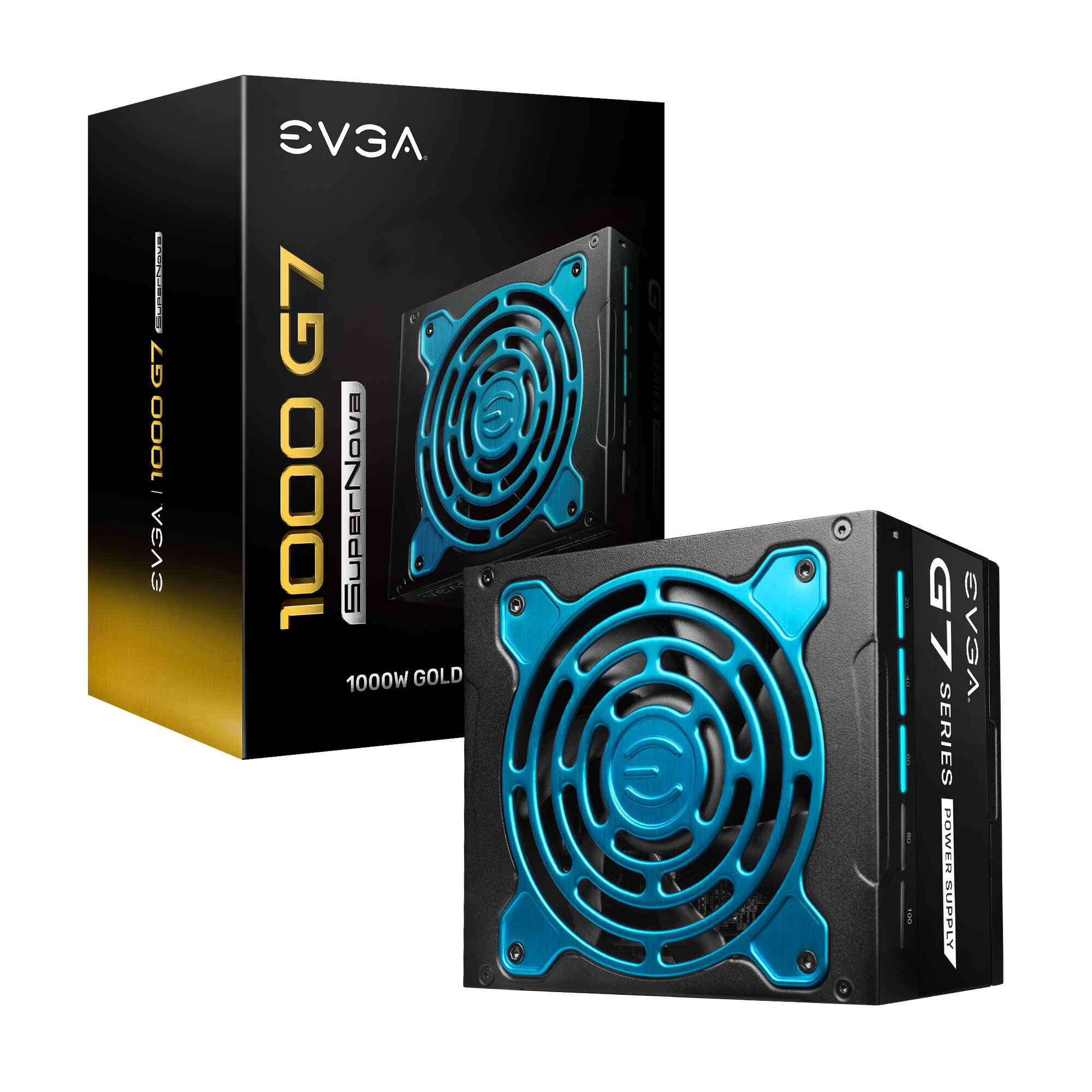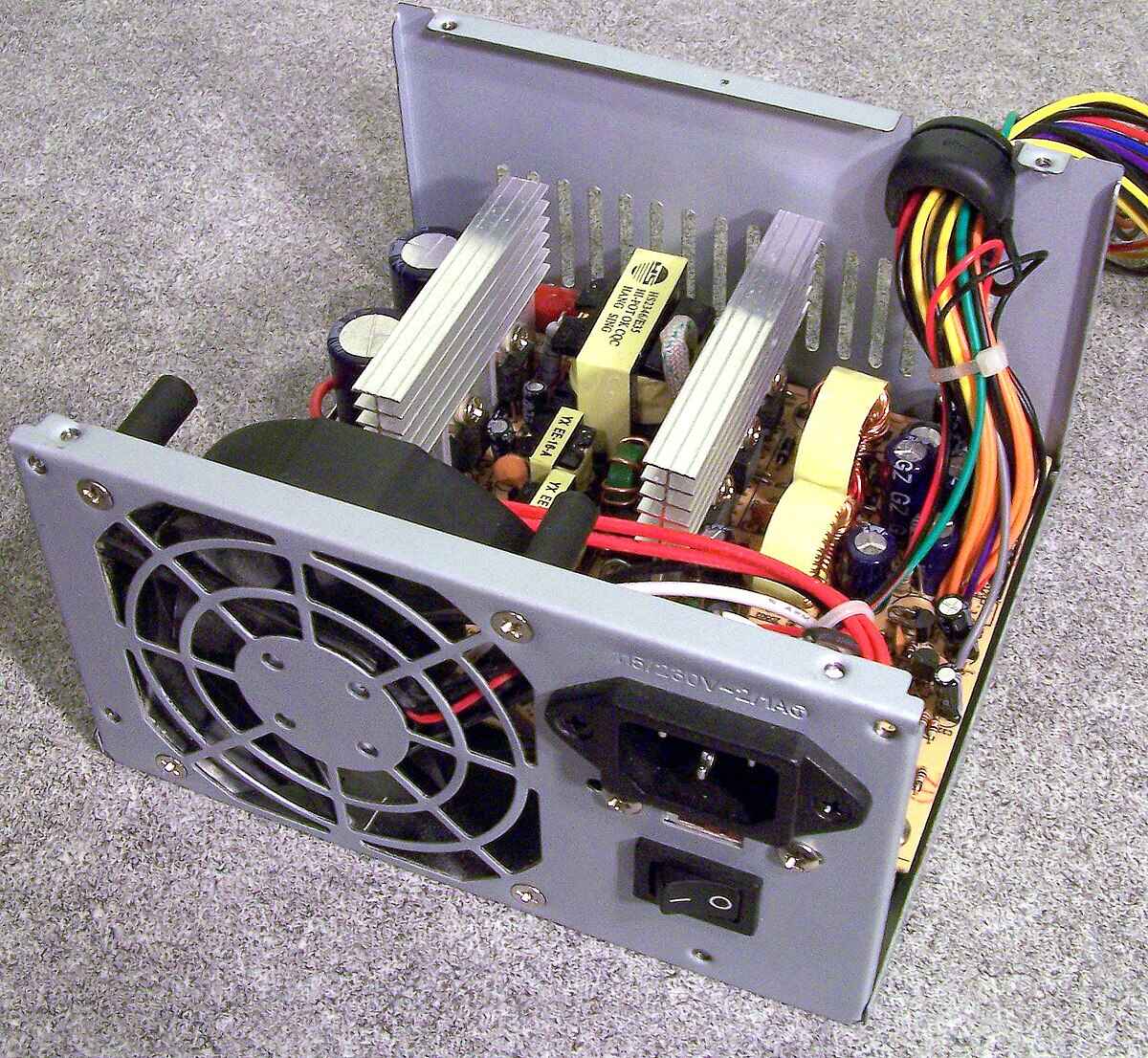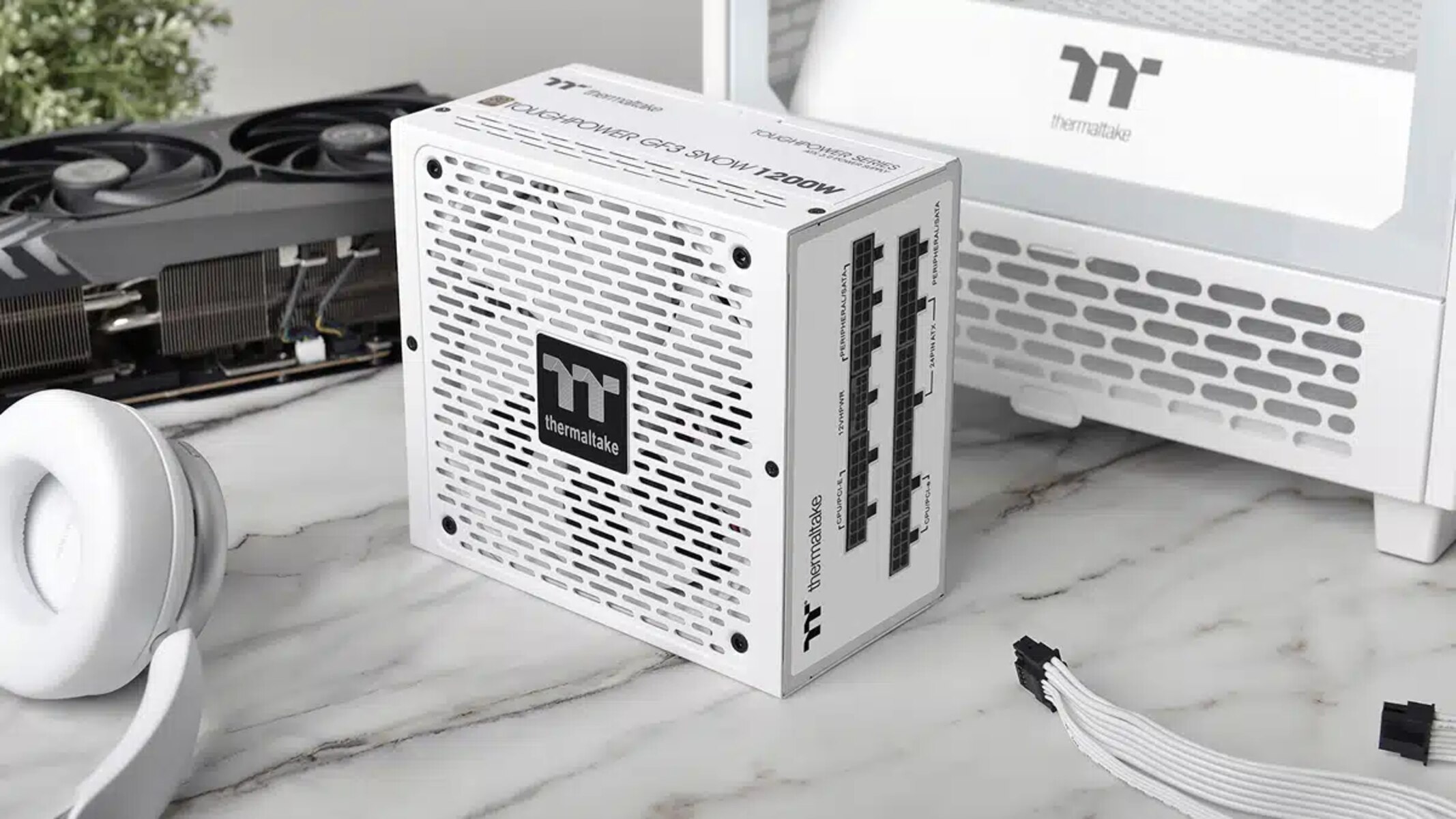Importance of a PSU for a 4090 GPU
When it comes to powering a high-performance graphics card like the 4090 GPU, having a reliable and capable power supply unit (PSU) is of paramount importance. The PSU serves as the backbone of your system, providing the necessary power to all the components, including the GPU.
The 4090 GPU is known for its exceptional performance capabilities, with its advanced processing power and ability to handle demanding tasks like gaming, video editing, and 3D rendering. However, all this power comes at a cost – the GPU requires a significant amount of power to operate efficiently.
A high-quality PSU is crucial for ensuring that your 4090 GPU receives a consistent and stable power supply. Without a reliable PSU, you may encounter issues such as system instability, crashes, and overall performance degradation. A poor-quality or underpowered PSU can strain the components in your system, potentially leading to overheating, hardware damage, and even system failure.
Additionally, a PSU with ample power capacity provides headroom for future upgrades and expansions. As technology advances, newer GPUs and other components may require more power. A PSU with higher wattage can accommodate these power-hungry upgrades, ensuring that your system remains compatible and future-proof.
Moreover, a high-quality PSU can contribute to the overall efficiency and longevity of your system. Efficient PSUs convert incoming AC power to DC power with minimal energy loss, reducing electricity consumption and operating costs. Furthermore, PSUs with higher efficiency ratings generate less heat, which can prolong the lifespan and reliability of the components within your system, including the 4090 GPU.
In summary, a reliable and capable PSU is crucial for maximizing the performance and stability of a 4090 GPU. It provides the necessary power for the GPU to function optimally and can prevent issues like system instability and hardware damage. Investing in a high-quality PSU will not only ensure the smooth operation of your 4090 GPU but also contribute to the efficiency and longevity of your entire system.
Factors to Consider Before Choosing a PSU
When selecting a power supply unit (PSU) for your 4090 GPU, it is crucial to consider several factors to ensure compatibility, reliability, and optimal performance. Here are some key factors you should take into account:
- Wattage: The wattage rating of the PSU is one of the most critical factors. The 4090 GPU requires a significant amount of power to function, so it’s important to choose a PSU with a sufficient wattage rating. It’s recommended to go for a PSU with a power rating that exceeds the GPU’s requirements to allow for headroom and future upgrades.
- Connectors: Check the PSU for the necessary connectors to support the 4090 GPU. Look for PCIe power connectors, as the 4090 GPU typically requires one or more of these connectors to receive power. Ensure that the PSU has the appropriate number and type of connectors to match the GPU’s requirements.
- Efficiency: PSU efficiency is measured by its 80 Plus certification rating. Higher certification levels indicate higher efficiency. A more efficient PSU not only consumes less power but also generates less heat. Look for PSUs with 80 Plus Bronze, Silver, Gold, or Platinum certifications for optimal efficiency.
- Modularity: Consider whether you want a modular or non-modular PSU. Modular PSUs offer the flexibility of connecting only the necessary cables, reducing cable clutter and improving airflow. On the other hand, non-modular PSUs come with fixed cables, which can be more cost-effective if cable management is not a concern for you.
- Brand and Quality: It is crucial to choose a reputable PSU brand known for manufacturing reliable and high-quality power supplies. Invest in a PSU from a reputable manufacturer known for their reliability, such as Corsair, Seasonic, EVGA, or Thermaltake.
- Price and Budget: Set a budget for your PSU and look for options that offer a balance between affordability and quality. Avoid compromising on quality just to save a few bucks as a subpar PSU can negatively impact your system’s stability and performance.
By considering these factors, you can ensure that the PSU you choose is compatible with your 4090 GPU and provides the necessary power for its optimal performance. Selecting a high-quality PSU that meets your system’s requirements will contribute to a stable and reliable computing experience.
Power Requirements of a 4090 GPU
Understanding the power requirements of a graphics card like the 4090 GPU is crucial when choosing an appropriate power supply unit (PSU) for your system. The power needs of the 4090 GPU depend on several factors, including its specifications and any additional components you have in your system.
The 4090 GPU is a high-performance graphics card known for its exceptional capabilities. Such powerful GPUs typically demand a significant amount of power to function optimally. While the exact power requirements may vary slightly depending on the specific model and manufacturer, the recommended power supply wattage for a 4090 GPU ranges from 750 to 850 watts.
It is important to note that the recommended wattage accounts for the power consumption of the GPU under heavy load conditions. This is to ensure sufficient power delivery even during demanding tasks like gaming, video editing, or 3D rendering, which can push the GPU to its limits.
In addition to the GPU itself, you need to consider the power requirements of other components in your system, such as the CPU, RAM, storage drives, and cooling system. These components also draw power from the PSU, and their combined power requirements must be factored in when determining the PSU wattage.
It’s worth mentioning that power requirements can vary based on factors such as overclocking, the number of peripherals connected, and the overall system load. If you plan on overclocking your CPU or GPU, it is recommended to choose a PSU with a slightly higher wattage rating to accommodate the increased power demands.
Keep in mind that the power requirements of the 4090 GPU are only part of the equation. It’s crucial to choose a reliable and high-quality PSU that can consistently deliver the required power. Investing in a well-built PSU will not only ensure stable power delivery but also protect your valuable components from potential damage caused by power fluctuations or inadequate power supply.
In summary, a 4090 GPU typically requires a PSU with a wattage rating ranging from 750 to 850 watts for optimal performance. However, it’s essential to consider the power requirements of other components in your system and factor in any additional power needs like overclocking or peripherals. Choosing a reliable and high-quality PSU that meets these power requirements is crucial for ensuring stable and efficient operation of your 4090 GPU and the entire system as a whole.
Recommended PSU Wattage for a 4090 GPU
When it comes to powering a high-performance graphics card like the 4090 GPU, choosing the right wattage for your power supply unit (PSU) is crucial to ensure optimal performance and system stability. While the exact power requirements may vary depending on various factors, including the specific model and manufacturer, the recommended PSU wattage for a 4090 GPU falls within the range of 750 to 850 watts.
This recommended wattage takes into consideration the power consumption of the 4090 GPU under heavy load conditions. It ensures that there is sufficient power supply to the GPU during demanding tasks such as gaming, video editing, or running resource-intensive applications. The higher wattage accounts for potential power spikes and provides headroom for power-hungry components.
It’s important to note that the recommended wattage is not solely based on the power requirements of the GPU itself. It also considers the power draw of other components in the system, including the CPU, RAM, storage drives, and cooling system. These components collectively contribute to the overall power consumption of the system and should be considered when determining the appropriate PSU wattage.
Furthermore, it’s worth mentioning that the recommended PSU wattage can vary depending on the intended usage and the specific configuration of your system. If you plan on overclocking your GPU or CPU, or if you have multiple hard drives, extensive RGB lighting, or other power-intensive peripherals, it’s advisable to choose a higher wattage PSU to meet the increased power demands.
Choosing a PSU with a wattage rating within the recommended range ensures that your 4090 GPU receives a stable and consistent power supply, avoiding potential bottlenecks and performance issues. It also provides room for future upgrades and expansions, as newer components and technologies may require higher power specifications.
Lastly, it’s important to invest in a high-quality PSU from a reputable brand known for its reliability. A well-built PSU not only delivers the required wattage but also ensures consistent power delivery, protects your components from power fluctuations, and contributes to the overall longevity and stability of your system.
In summary, a PSU with a wattage rating ranging from 750 to 850 watts is recommended for powering a 4090 GPU. This recommended wattage takes into account the power requirements of the GPU and other components in the system. Choosing a high-quality PSU within this wattage range will help ensure optimal performance, stability, and longevity for your 4090 GPU and the entire system as a whole.
PSU Efficiency and Certification
When selecting a power supply unit (PSU) for your system, one important factor to consider is its efficiency and certification. PSU efficiency refers to how effectively the power supply converts incoming AC power to DC power, minimizing energy waste and reducing operating costs. Efficiencies are categorized and certified by organizations such as 80 Plus, which sets standards and provides certifications based on power supply efficiency.
The higher the efficiency rating of a PSU, the less energy it wastes in the conversion process. This means that more electrical power is delivered to your components, resulting in better overall system performance and reduced electricity consumption. PSU efficiencies range from 80 Plus White (80% efficiency at 20% and 100% load) to 80 Plus Titanium (at least 90% efficiency at 20% load and 94% efficiency at 100% load).
PSU certification plays a significant role in determining the overall quality and reliability of a power supply. It ensures that the PSU meets specific criteria set forth by the certification organization. The most common PSU certifications are 80 Plus White, 80 Plus Bronze, 80 Plus Silver, 80 Plus Gold, 80 Plus Platinum, and 80 Plus Titanium. These certifications indicate the efficiency level and electrical performance of the PSU.
Choosing a PSU with a higher certification, such as 80 Plus Gold or Platinum, comes with several benefits. First, higher certified PSUs generally offer higher efficiency, resulting in lower operating costs and reduced heat generation. This not only saves energy but also allows for quieter operation and improved overall system temperature management.
Furthermore, PSUs with higher certifications often feature more robust internal components and better build quality. They are designed to handle higher loads, provide stable power delivery, and offer better protection mechanisms against overvoltage, undervoltage, and short circuits. These features contribute to the overall reliability and longevity of your system.
However, it’s important to note that PSU efficiency and certification should not be the sole determining factor when choosing a PSU. It’s also essential to consider other factors like wattage, brand reputation, and customer reviews. Additionally, it’s crucial to ensure that the PSU’s wattage rating meets the power requirements of your system, including any power-hungry components like high-performance GPUs.
In summary, PSU efficiency and certification are important considerations when selecting a power supply for your system. Higher certified PSUs offer better efficiency, lower operating costs, and improved overall system performance. They often come with more robust components and enhanced protection mechanisms. However, it’s essential to consider the PSU’s wattage rating and other factors to ensure compatibility and reliability in your system.
Choosing the Right PSU for Your 4090 GPU
Selecting the right power supply unit (PSU) for your 4090 GPU is crucial for ensuring optimal performance, stability, and longevity of your system. Here are some key factors to consider when choosing the PSU:
1. Wattage: The recommended PSU wattage for a 4090 GPU typically falls within the range of 750 to 850 watts. Consider the power requirements of the GPU and other components in your system to ensure that the PSU can deliver sufficient power.
2. Quality and Reliability: Invest in a high-quality PSU from a reputable brand known for its reliability. Look for PSUs that offer features like overvoltage protection, surge protection, and high-quality components that can handle heavy loads and provide stable power delivery.
3. Efficiency and Certification: Consider PSU efficiency and certification, such as 80 Plus Gold or Platinum, to minimize energy waste, reduce operating costs, and improve overall system performance. Higher-certified PSUs often come with better build quality and enhanced protection mechanisms.
4. Connectors and Cables: Check the PSU for the necessary connectors and cables to support the 4090 GPU and other components in your system. Ensure that it has the appropriate number and type of connectors, including the required PCIe power connectors for the GPU.
5. Modularity: Decide whether you prefer a modular or non-modular PSU. Modular PSUs provide flexibility by allowing you to connect only the necessary cables, reducing cable clutter and improving airflow. Non-modular PSUs can be more cost-effective if cable management is not a concern.
6. Brand Reputation and Customer Reviews: Research and consider the reputation of the PSU brand. Read customer reviews and feedback to get an idea of the PSU’s performance, reliability, and customer satisfaction.
7. System Upgradability: Consider future upgrades and expansions. Choose a PSU with higher wattage than the immediate requirements of your system to accommodate future power-hungry components or overclocking.
8. Budget: Set a budget for your PSU and find a balance between quality and affordability. Avoid compromising on quality for a lower price as a subpar PSU can affect the stability and performance of your system.
Considering these factors will help you choose a PSU that meets the specific power requirements of your 4090 GPU and your overall system. By investing in a reliable and high-quality PSU, you can ensure stable power delivery and protect your valuable components from potential damage caused by inadequate power supply or fluctuations.
Modular vs Non-Modular PSUs for a 4090 GPU
When choosing a power supply unit (PSU) for your 4090 GPU, one factor to consider is whether to opt for a modular or non-modular PSU. Both types offer their own advantages and considerations that can impact your system’s performance, cable management, and overall user experience.
Modular PSUs:
Modular PSUs provide flexibility by allowing you to connect only the necessary cables to your components. They come with detachable cables that can be plugged into the PSU as needed. This not only reduces cable clutter but also improves airflow within your system, contributing to better cooling and potentially lower operating temperatures.
With a modular PSU, you have the advantage of using only the cables required for your specific system configuration. This results in a cleaner and more organized layout, making it easier to manage cables and improve overall aesthetics. It also simplifies the process of adding or removing components in the future, as you can easily detach or replace individual cables as needed.
However, one consideration with modular PSUs is that the detachable cables can add a bit of bulkiness to the overall PSU size. This might be a concern if you have limited space inside your computer case. Additionally, modular PSUs tend to be slightly more expensive compared to non-modular PSUs due to their added convenience and flexibility.
Non-Modular PSUs:
Non-modular PSUs, as the name suggests, come with fixed cables that are permanently connected to the PSU. These cables are designed to accommodate a wide range of system configurations, ensuring compatibility with various components. Non-modular PSUs are generally more affordable compared to their modular counterparts.
One advantage of non-modular PSUs is that they have a more streamlined design since there are no detachable cables. This can be beneficial if you have a compact computer case with limited space or if cable management is not a top priority for you.
However, the downside of non-modular PSUs is that they can lead to additional cable clutter inside your system. Unused cables may take up space and impede airflow, potentially increasing temperatures and affecting overall cooling efficiency. Managing and organizing the excess cables can be more challenging compared to modular PSUs, especially in larger systems with multiple components.
In summary, the choice between modular and non-modular PSUs for your 4090 GPU depends on your priorities and specific system requirements. If cable management and system aesthetics are important to you, a modular PSU offers flexibility and allows for better cable organization. On the other hand, if cost efficiency and space-saving are higher priorities, a non-modular PSU may be a suitable option.
Consider your budget, available space, and long-term system goals before making a decision. Regardless of the type you choose, ensure that the PSU meets the power requirements of your 4090 GPU and provides stable and reliable power delivery for optimal performance.
Overclocking and PSU Considerations for a 4090 GPU
Overclocking, the process of increasing a component’s clock speed to achieve higher performance, can bring additional power requirements and considerations for your 4090 GPU. When considering overclocking your GPU, it is crucial to ensure that your power supply unit (PSU) can handle the increased power demands effectively and maintain stability. Here are some considerations to keep in mind when it comes to overclocking and PSU selection:
Power Delivery:
Overclocking pushes the GPU to operate at higher clock speeds, which leads to increased power consumption. This means that your PSU needs to provide a higher and stable power output to accommodate the overclocked GPU. Choosing a PSU with a higher wattage rating than the recommended wattage for the stock GPU ensures that you have sufficient power headroom to support the increased power demands during overclocking.
PSU Efficiency:
When overclocking, the power consumption of your 4090 GPU increases, resulting in more heat being generated. A high-performing and efficient PSU can help manage and dissipate this extra heat efficiently, contributing to overall system stability. Opting for a PSU with a higher efficiency rating, such as 80 Plus Gold or Platinum, can also ensure that less power is wasted during the conversion process, reducing energy costs and minimizing heat generation.
Quality and Reliability:
Overclocking puts additional stress on the GPU and the entire system. Choosing a high-quality PSU with reliable components and advanced protection mechanisms, such as overvoltage protection and stable power delivery, is crucial. With overclocking, there is an increased risk of voltage spikes and power fluctuations, which a reliable PSU can help mitigate, reducing the chances of hardware damage.
Cable Management:
Effective cable management is essential when overclocking your GPU. Opting for a modular PSU allows you to connect only the necessary cables, reducing cable clutter and improving airflow within the system. Good airflow helps dissipate the extra heat generated during overclocking, contributing to a more stable system. Proper cable management also facilitates easier troubleshooting, component replacement, and upgrades in the future.
Heat Dissipation and Cooling:
Overclocking can increase the temperature of your GPU, requiring effective cooling measures. The PSU plays a role in system-wide heat dissipation, as it generates its own heat during operation. A PSU with efficient cooling features, such as a high-quality fan or effective heat sinks, can help maintain lower temperatures within the PSU and, consequently, the overall system.
In summary, when overclocking your 4090 GPU, it is vital to consider the power delivery, efficiency, quality, cable management, and cooling capabilities of your PSU. Choosing a high-quality PSU with a higher wattage rating, efficient power conversion, and advanced protection mechanisms ensures stable power delivery, mitigates the risk of system instability, and helps maintain optimal performance during overclocking.
Best PSUs for a 4090 GPU
When it comes to powering a high-performance graphics card like the 4090 GPU, it is essential to choose a reliable and high-quality power supply unit (PSU) to ensure optimal performance and system stability. Here are some of the best PSUs available on the market that are well-suited for a 4090 GPU:
1. Corsair RM850x: The Corsair RM850x is a top-tier PSU known for its excellent performance and reliability. With an 80 Plus Gold certification and 850 watts of power output, it can easily handle the power demands of the 4090 GPU and other high-end components. It features fully modular cables for easy cable management and offers high efficiency, low noise levels, and reliable power delivery.
2. EVGA SuperNOVA 850 G5: The EVGA SuperNOVA 850 G5 is a highly regarded PSU known for its exceptional performance and build quality. With an 80 Plus Gold certification and 850 watts of power, it can easily handle the power requirements of the 4090 GPU, even during overclocking. It features fully modular cables, a quiet fan, and advanced protection mechanisms to ensure stable power delivery and excellent reliability.
3. Seasonic Focus GX-850: The Seasonic Focus GX-850 is another excellent option for powering a 4090 GPU. With an 80 Plus Gold certification and 850 watts of power output, it delivers efficient and reliable power for high-performance components. The PSU is fully modular, allowing for easy cable management, and boasts a quiet operation with a reliable cooling system to maintain low temperatures even under heavy loads.
4. Thermaltake Toughpower Grand RGB 850W: The Thermaltake Toughpower Grand RGB 850W offers a good blend of performance, aesthetics, and functionality. With an 80 Plus Gold certification and 850 watts of power, it provides stable and efficient power delivery. The PSU features customizable RGB lighting, a fully modular design, and reliable performance for powering a 4090 GPU and other demanding components.
5. NZXT C850: The NZXT C850 is a high-quality PSU that delivers reliable power for a 4090 GPU. With an 80 Plus Gold certification and 850 watts of power, it provides efficient power delivery and excellent performance. The PSU features a fully modular design, a quiet operation, and reliable components to ensure stable power output for your system.
These are just a few examples of the best PSUs available for powering a 4090 GPU. When selecting a PSU, it’s important to consider the power requirements, efficiency, brand reputation, and customer reviews. It is also worth noting that power supply requirements may vary depending on your specific system configuration and usage. Therefore, carefully evaluate your needs and consult specifications and recommendations from the GPU manufacturer and PSU manufacturers to make an informed decision.
Conclusion
Choosing the right power supply unit (PSU) for your 4090 GPU is paramount to ensure optimal performance, stability, and longevity of your system. Consider factors such as wattage, quality, efficiency, modular/non-modular design, brand reputation, and budget when selecting a PSU.
When it comes to power requirements, a PSU with a wattage rating ranging from 750 to 850 watts is recommended for a 4090 GPU. This wattage provides sufficient power for the GPU to function optimally, even during demanding tasks or overclocking.
Investing in a high-quality PSU from reputable brands such as Corsair, EVGA, Seasonic, Thermaltake, or NZXT is crucial. These brands are known for their reliability, efficient power delivery, and advanced protection mechanisms, ensuring stable power and safeguarding your components.
Efficiency and certification are significant considerations. Look for PSUs with higher efficiency certifications, such as 80 Plus Gold or Platinum, to minimize energy waste, reduce operating costs, and improve overall system performance. These PSUs also tend to have better build quality and enhanced protection mechanisms.
The choice between modular and non-modular PSUs depends on your priorities. A modular PSU allows for better cable management and improved airflow, while a non-modular PSU can be more cost-effective and suitable for compact cases or situations where cable management is not a top priority.
Lastly, consider overclocking and power requirements. Overclocking increases power consumption, necessitating a PSU with higher wattage and stable power delivery. Efficient cooling, good airflow, and proper cable management are also essential when overclocking your GPU.
In conclusion, selecting the right PSU for your 4090 GPU ensures stable power delivery, optimal performance, and protection for your valuable components. By considering factors such as wattage, quality, efficiency, modular/non-modular design, and overclocking considerations, you can make an informed decision and create a reliable and efficient system powered by the 4090 GPU.







